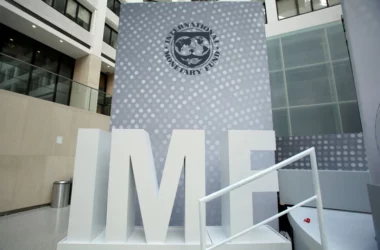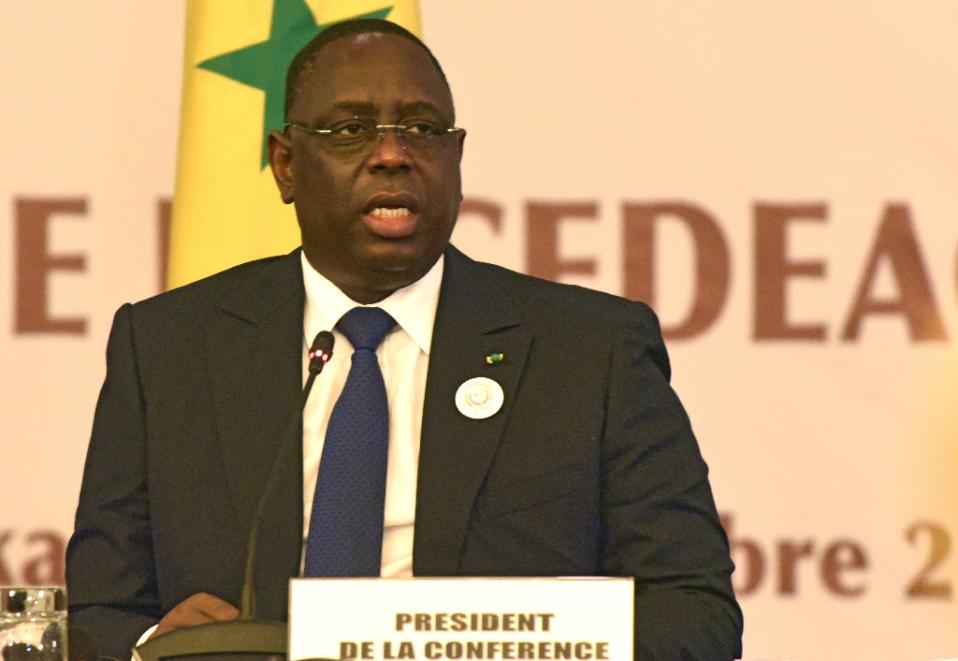
(JollofNews)- Since the latest rift between Qatar and Saudi took us off-guard, the West has so far not condemned one side, while siding with the other. Given that the accusations against Qatar range from supporting terrorism to having strong ties with Shia-led Iran, one would expect the West to be the first to side with Saudi, given the financial and intellectual ‘commitment’ of the West to combating terrorism. Apart from the tweet by Trump, no major Western country has taken side in what appears for many as a family feud.
However, it is poor majority-Muslim countries, Senegal in particular, caught in a cobweb of debts, inflation, and internal struggle, that have condemned Qatar for its “propagation of extremist ideas” and actions that will likely “harm cohesion of states in the [Gulf] region and peace in the world.” This begs the questions: Are West Africa’s majority-Muslim countries more committed to fighting terrorism than the rest of the world that has taken a neutral ground on the Gulf crisis? Why hasn’t any major European country cut ties with Qatar?
Over the years, Saudi has consolidated its presence in Africa through what I call the ‘pilgrim-package diplomacy’, in which Senegal is a major beneficiary. Saudi offers pilgrim packages to African leaders, who in turn distribute this offer to loyalists who are desperate to make it to the Holy city of Mecca – a journey so costly that the middle class cannot afford it, forget the poor. This top-down patron-client approach has been used by Saudi to consolidate its presence in Muslim West Africa, whose leaders have been using this offer as a political leverage over community leaders through whom they are able to reach to the masses for their votes.
As soon as Saudi, along with the United Arabs Emirates (UAE), Bahrain and Egypt mounted an unprecedented diplomatic and economic blockade against Qatar for allegation of having ties with terrorism – a charge Qatar has dismissed as an attempt to undermine its independent foreign policy and economy –, Senegal, Mauritania, and Chad weighed in to support the Saudi-led initiate.
It shouldn’t be surprising to see that Senegal, Chad and Mauritanian have chosen to align themselves with a wannabe regional power, given that Saudi’s petro-dollar has been flowing into the pockets of their leaders. Consequently, Saudi’s petrodollar has become the target of foreign policymakers in Africa that most governments who have cut ties with Qatar are driven by the need to milk Saudi than to drive a pragmatic foreign policy approach, aimed, among other things, in combating terrorism and slavery.
The blockade and sanctions against Qatar are orchestrated by Saudi to consolidate its regional ambitions. Evidently, Qatar’s foreign policy is more liberal than all of its Arab neighbors’, thereby undermining Saudi’s regional hegemonic ambitions, as the former has refused to sever ties with Iran, Saudi’s arch nemesis. Everyone, except a dedicated ideologue, knows that the blockade against Qatar is aimed at coercing it to reshape its independent foreign policy which represents a direct threat to both Saudi and the authoritarian regime of Abdel Fattah el-Sisi of Egypt.
Furthermore, while Saudi has continued to behead political prisoners, evident in the beheading of prominent Shia cleric, Sheikh Nimr al-Nimr, and 46 others last year, Qatar has, over the years, served as safe haven for political prisoners who have been on the radar of Saudi’s nefarious security forces. This humanitarian gesture does not bode well for the future of Saudi.
Now caught in the midst of this feud are some African countries whose foreign policy approaches offer us the metaphor of a marriage of convenience: The alignments of Senegal, Chad, and Mauritania with Saudi are driven by economic interests rather than their commitment to fighting terrorism. This makes these countries pawns in a family feud over differences on what amounts to Islamic extremism (Qatar’s support to Hamas), support for political Islam (Qatar’s position on the Muslim Brotherhood), and freedom of expression (Qatar’s Aljazeera’s regional and global voice).
Senegal has over the years acted as the devil’s advocate in Muslim West Africa, serving as the protégé of Saudi’s interests in the region. As a reward, Saudi has continued to foot the bill for the men who rule Dakar, and has built Qur’anic schools in Senegal where children are continuous abused.
This marriage of convenience between Saudi and Muslim West Africa is a harbinger of how Saudi is aiming to strengthen its role as an ideological crusader, and its ambitions as a wannabe regional and global power, by dragging Africa into its strategic foreign policy. Saudi’s foothold in Muslim Africa produces lesser result, except the offering of pilgrimage packages to Mecca. If Saudi is committed to helping Africa, it is not enough to build Islamic schools; it should reduce the exorbitant costs of going on pilgrimage; treat black African workers, who are continuously exploited by Saudi businessmen on Saudi soil, humanely.
While Muslim-majority countries in Africa, especially Senegal, could have taken a benign and well-calculated stance on the Gulf crisis, it is worth reminding their foreign policy experts that Qatar is a victim carrying the sins of everyone else’s who sponsors terrorism, including the US and Qatar’s own brethren, Saudi Arabia.
By Amat JENG
The author is a naturalized Swedish citizen who studies International Relations and Linguistics at the Dalarna University, Sweden, and now studies at Oxford as an Erasmus fellow. Email: h15amaje@du.se













Very interesting article but let us not forget that there are other Muslim-majority African countries that refused to side with Saudi e.g. Somalia and Sudan.
This journalist is lacking in inspiration, accusing the leaders of Senegal, Mauritania and Chad of pocketing amounts of so-called rich countries of Golf forgets that Qatar is a principality of the Golf richer than some Of the countries he cited in particular Egypt. So nothing says that also Qatar has not given large sums to the leaders of the countries in particular the small Gambia and the European countries to dissuade them not to align themselves with the just cause of the countries that have quarantined Qatar. The leaders of Senegal, Mauritania and Chad do not need the money of the Golf because they are at the head of countries relatively wealthy in economic terms. Senegal has always been a hub of West Africa with a dynamic and hard-working population, it is a preferred destination for tourists, produces phosphate, and has enveloped a diversified agriculture which puts it among the countries that have Successful food self-sufficiency. Mauritania produces iron, gold, copper, rare earth, gypsum, marble, this country possesses one of the most fishy coast in the world. Fishery products, iron and gold allow Mauritania to pursue an independent foreign policy vis-à-vis the so-called rich countries behind which your country runs morning and evening for donations. In addition, Mauritania is beginning to gain momentum, even limited oil and gas production can provide enough resources that can fill the pockets of its leaders if they want without resorting to third countries Which are experiencing terrible inflation. Mauritania is rich in animals (sheep, goats, etc.), which it is self-sufficient in meat and milk. For Chad, the only information I have is that it is an oil country. The oil brings him a manna that allows him to refrain from begging with others. As for Qatar, which you are defending, it may be non-innocent, its resources bring misery and destruction to many Muslim countries (Syria, Egypt, Libya, Tunisia, Iraq and others in Africa And the Middle East). Its policy based on its gas revenues was oriented on the purchase of weapons to vassalize certain countries which were experiencing instability and this in order to play in the course of the great on its gas revenues was oriented on the purchase of weaponry to vassalize certain countries which were experiencing instability and this in order to play in the course of large. The European countries and America who refrained from aligning themselves with the position of Saudi Arabia because Qatar bought a lot of weapons from these countries. Mauritania in the time of Hamed father was threatened that if it did not align with Qatar ‘s terrorism policy, it would suffer the same fate as Libya, the current president virtually dismissed it without a protocol or ceremony of ” farewell. So Qatar was leading a terrorist policy in the world to bring to the knees the countries that are militarily weak and who have a drastic need for its help.
I recommend to author to visit these two links below where he will learn that his assertions about the high rate of inflation and debt of Senegal are totally wrong :
https://tradingeconomics.com/senegal/inflation-cpi
https://www.imf.org/external/pubs/ft/dsa/pdf/2016/dsacr1603.pdf
Needless to say , Senegal’s diplomacy , even though a very small country , is an envy around the world .
To Siddiki Mohammed and Gaindeh, No matter what the Rationale and Reason may be, it is not a good idea for “Outsiders to take sides in a Family Conflict”. The family Members Reconcile leaving the the Gullible Outsiders holding the Bag. You don’t want to know what is in the Bag. Let Sleeping Dogs Lie.